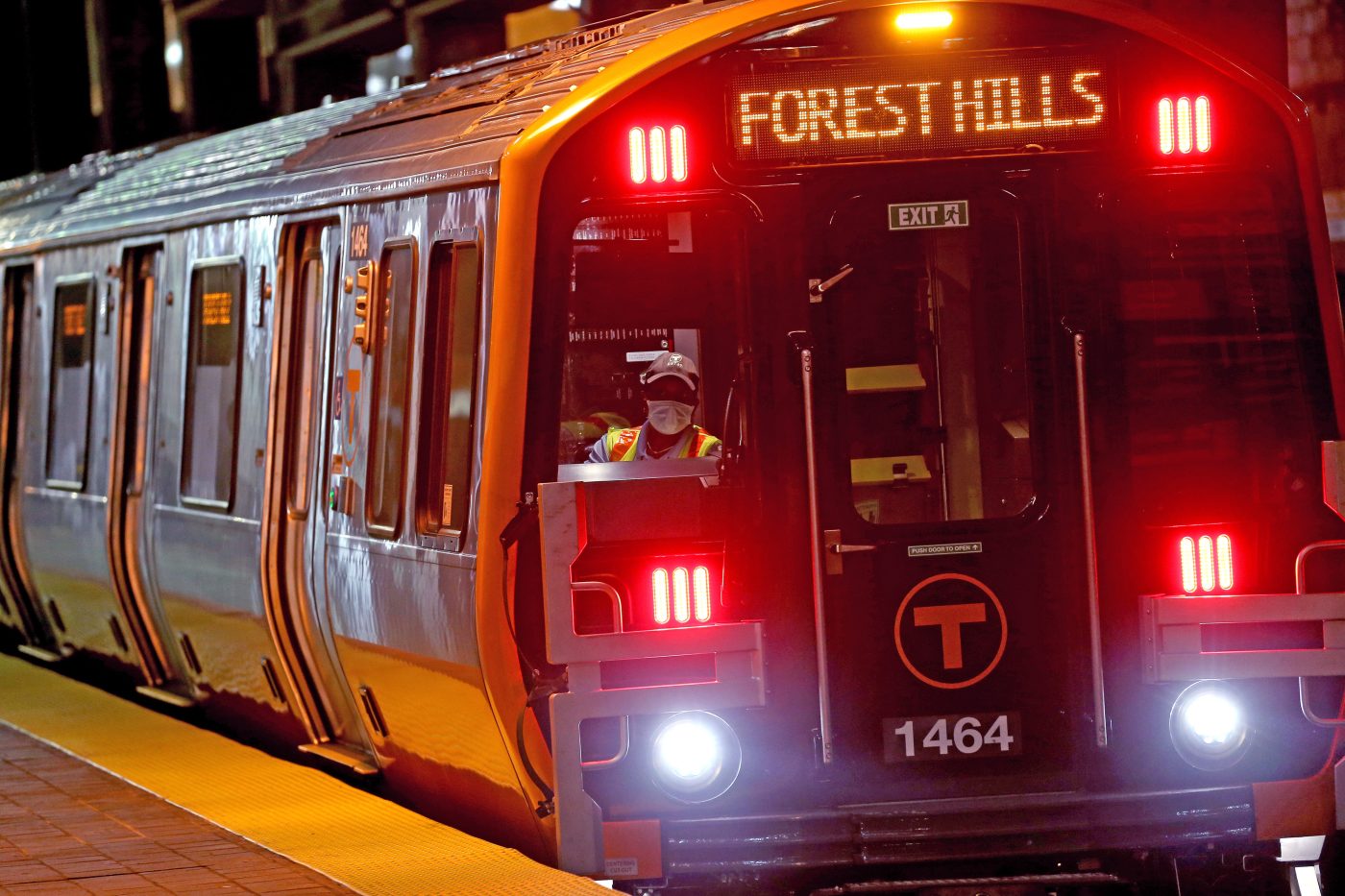
Union president says Massachusetts commuter rail workers will strike if needed
The union workers operating the MBTA’s commuter rail network are fed up with the conditions they are forced to work under to keep the trains rolling and are willing to strike if that’s what it takes for their complaints to be heard, according to the president of one union.
Appearing before the MBTA Board of Directors on Thursday while flanked by dozens of orange-vest wearing union members, Transport Workers Local 2054 president Ed Flaherty said that workers employed by Keolis, a French company contracted to run the commuter rail, are not paid a living wage and are without a contract.
“Today at Keolis, we are at day 238 without a contract. While both sides are negotiating in good faith, let me tell you what we’re up against,” Flaherty said.
Flaherty went on to explain that the state’s commuter rail employees are some of the lowest paid rail workers in the industry. Right now, he said, an Amtrak employee in a similar position makes 12% more than a Keolis worker and by 2028 the disparity will be upwards of 50%. The same story is true for workers employed by similar sized rail systems in New York state, Flaherty said, and it’s not like living in Massachusetts is cheap.
“We don’t live in Nebraska. The cost of living is extremely high here. Most of us travel great distances to go to work, we travel from as far west as Worcester and as far south as Pawtucket. We are some of the only employees in Massachusetts with no sick time,” Flaherty said. “For years, the MBTA has treated the commuter rail as the illegitimate stepchild of the MBTA, only paying child support to whoever runs it and the provider takes their cut before it comes down to us.”
The contract for running the commuter rail is up for bid again soon, Flaherty told the board, and it would be worthwhile asking if things have gotten better in the last 20 years. Some employees work 80 hours a week to make ends meet, Flaherty said. Newly hired cleaners are paid so poorly, he said, that they qualify for food stamps and housing assistance. That wasn’t the case two decades ago when Amtrak ran the commuter rail, he said.
“These jobs used to be a path to the middle class, not a path to the welfare line,” he said. “This is proof that privatization does not work.”
MBTA General Manager Phil Eng thanked the union members for bringing the matter to the full board, and stressed that the workforce has and will continue to be a focus of his as he works to improve the transportation system he took over last year.
“All of the things you asked for, my understanding is it’s being discussed right now, and robustly back and forth,” Eng said of ongoing contract negotiations. “We do understand just how important it is for everyone, not only to be able to perform their job, but to be able to live the quality of life that they are looking to do.”
The Railway Labor Act, Flaherty responded, makes it harder for rail workers to strike, but it doesn’t prohibit a work stoppage if the situation is bad enough.
“Keep in mind, we do not want to strike. But when we’re legally able to, we will,” he warned.
Keolis could not be reached for comment by press time.


